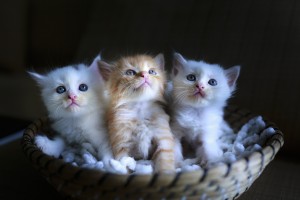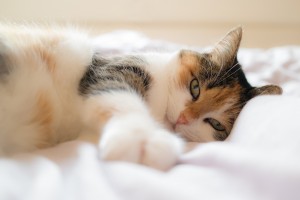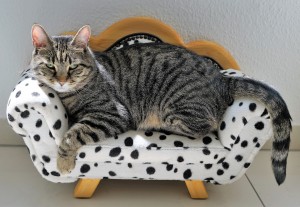by Soojin Um
Staff Writer
 All pet owners know, from the moment they take their furry tots home, the inevitable fate that awaits them. Humans on average live about 5 times longer than cats, therefore in most cases we will outlive them. We see them through kitten hood (sometimes even from birth), and we take care of them until the end. It’s certainly not pleasant to think about or to plan for, it’s not easy to even write about. However, it is something we will need to consider at some point, and maybe even to prepare. It will happen someday, hopefully a someday that is far, far in the future.
All pet owners know, from the moment they take their furry tots home, the inevitable fate that awaits them. Humans on average live about 5 times longer than cats, therefore in most cases we will outlive them. We see them through kitten hood (sometimes even from birth), and we take care of them until the end. It’s certainly not pleasant to think about or to plan for, it’s not easy to even write about. However, it is something we will need to consider at some point, and maybe even to prepare. It will happen someday, hopefully a someday that is far, far in the future.
So why do we do it, why do we raise these animals? It all started with farms and ocean going ships. Varmints of all kinds threatened our grain stores. They even threatened us with the diseases that they carried. It was a contract: we got our grains intact, we were free from disease, and cats got a license to hunt mice, rats, and other grain-eating and disease-spreading rodents. Some captains refused to sail without a cat aboard. Not only because of their hunting prowess but also because their highly sensitive ears being able to detect changes in atmospheric pressure (which can detect changes in weather). That ability could also save lives. Cats may not always show it, but they’re there for us, and the modern world could be very different without them.
 The sad question remains: what happens when the time comes, and how do we know? Most likely, we’ll just know. When we look into our loved one’s eyes, we will know. Quality of life comes up a lot, and for good reason. If in their shoes, would we want to carry on? There are many factors involved. What is the realistic prognosis? How much pain are they experiencing? Difficult questions to consider but in the end necessary.
The sad question remains: what happens when the time comes, and how do we know? Most likely, we’ll just know. When we look into our loved one’s eyes, we will know. Quality of life comes up a lot, and for good reason. If in their shoes, would we want to carry on? There are many factors involved. What is the realistic prognosis? How much pain are they experiencing? Difficult questions to consider but in the end necessary.
There aren’t readily available statistics, but many if not most pet parents elect to get a new pet after the previous one dies. However, how soon is too soon? There is debate as to whether getting a new pet right away is a good thing or not. One of the main concerns is whether there has been sufficient time to mourn. You don’t want to get a new kitten right away in an attempt to mask the pain of loss. That can actually lead to resentment and additional sadness. We should not aim to replace our lost loved ones. Rather, we should treat each animal as truly unique and wonderful creatures that they are.
 We do a curious thing. We raise a living being and love them like we would our own children. Except these “children” are destined to pass before we do. How many of us would have actual human children knowing we will outlive them? Probably not many. Yet, we raise almost 150 million animals in this country, in nearly one-third of American households. Why do we do it? Maybe (and this may sound selfish) it’s because we get so much from doing so. The love we get from our furry companions sustains us and can inspire us forward. It’s also sort of a quid pro quo: we save their lives, and they save ours. That’s not such a bad bargain after all.
We do a curious thing. We raise a living being and love them like we would our own children. Except these “children” are destined to pass before we do. How many of us would have actual human children knowing we will outlive them? Probably not many. Yet, we raise almost 150 million animals in this country, in nearly one-third of American households. Why do we do it? Maybe (and this may sound selfish) it’s because we get so much from doing so. The love we get from our furry companions sustains us and can inspire us forward. It’s also sort of a quid pro quo: we save their lives, and they save ours. That’s not such a bad bargain after all.
Please let us know your thoughts on this topic and/or give us feedback here or on Facebook.

